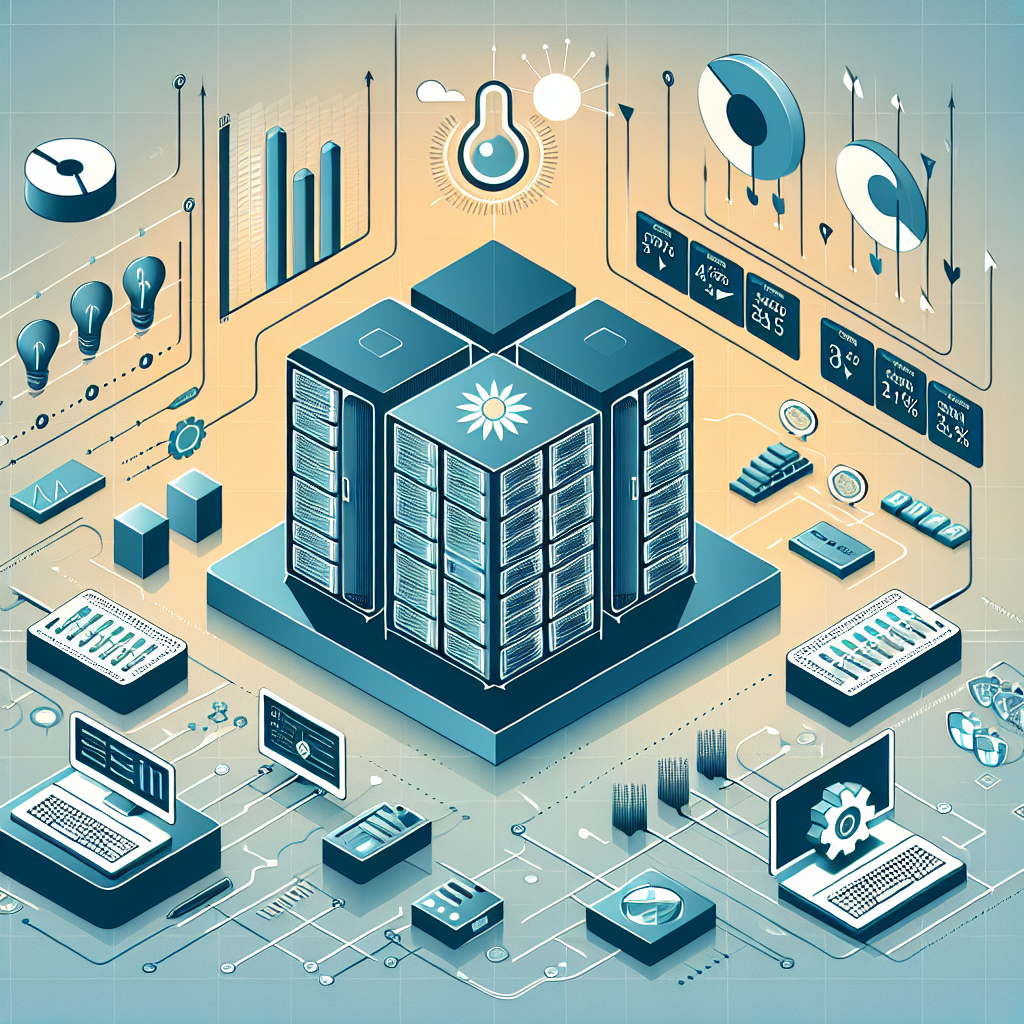Your cart is currently empty!
Measuring Success: Metrics for Evaluating Data Center Energy Efficiency

Data centers are essential for storing and processing vast amounts of information in today’s digital age. These facilities consume a significant amount of energy to power servers, cooling systems, and other equipment. As energy costs continue to rise and concerns about environmental impact grow, it is essential for data centers to prioritize energy efficiency.
Measuring the energy efficiency of a data center is crucial for identifying areas for improvement and reducing energy consumption. Various metrics can be used to evaluate energy efficiency, allowing data center managers to track their progress and make informed decisions. Here are some key metrics for evaluating data center energy efficiency:
Power Usage Effectiveness (PUE): PUE is a widely used metric for measuring the energy efficiency of a data center. It represents the ratio of total energy consumed by the data center to the energy consumed by IT equipment. A lower PUE value indicates a more efficient data center, as less energy is being used for cooling and other non-IT functions.
Data Center Infrastructure Efficiency (DCiE): DCiE is the inverse of PUE and represents the percentage of energy consumed by IT equipment compared to the total energy consumed by the data center. A higher DCiE value indicates a more energy-efficient data center, as a larger proportion of energy is being used for IT functions.
Energy Reuse Effectiveness (ERE): ERE measures the efficiency of reusing waste heat generated by data center equipment. By utilizing this waste heat for heating or other purposes, data centers can reduce their overall energy consumption. A higher ERE value indicates more efficient use of waste heat and reduced energy waste.
Carbon Usage Effectiveness (CUE): CUE measures the amount of carbon dioxide emissions produced per unit of IT energy consumed. By tracking CUE, data center managers can assess the environmental impact of their operations and work towards reducing carbon emissions.
Water Usage Effectiveness (WUE): WUE measures the amount of water used for cooling and other purposes in relation to the energy consumed by the data center. By tracking WUE, data center managers can identify opportunities to reduce water usage and minimize environmental impact.
By using these metrics to evaluate data center energy efficiency, managers can identify areas for improvement and implement strategies to reduce energy consumption and environmental impact. Additionally, tracking these metrics over time allows data center operators to monitor their progress and demonstrate their commitment to sustainability. Ultimately, prioritizing energy efficiency in data center operations not only helps reduce costs but also contributes to a more sustainable future for the industry.

Leave a Reply